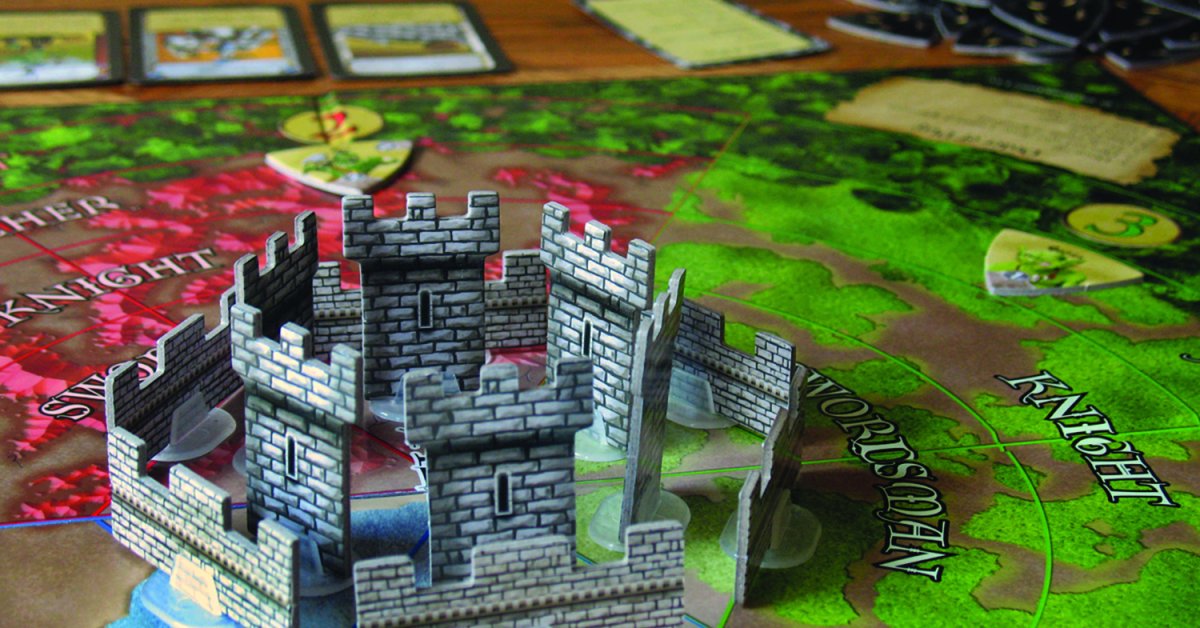With 2020 behind us, it's time to look back at what happened (or didn't happen).
Your Turn: I couldn't fit all the trends into one article, so what did I miss?
The Pandemic Didn't Go Away
A lot of plans around vaccinations, reintegration of in-person events, and other gaming engagements, didn't happen as planned. Their dates were pushed back, reduced in size, went virtual, or a combination of all three. In some ways, the virtual-ization of events broadened their scope, while in others it simply adjusted to the reality that not as many people were as interested (or had the funds) to go to in-person conventions. For more on how conventions are returning to form, see Egg's coverage of the Origins Game Fair.Crowdfunding Accelerated
Crowdfunding has shifted gears from becoming the occasional splurge for companies to test products, to their way of marketing products. And for good reason: customers are flocking to crowdfunding of tabletop RPG and ancillary products in droves. As Russ has outlined, there's more million-dollar-club members than ever before. And EN Publishing nearly hit that number with Level Up, with the company regularly using Kickstarter to distribute product.Luxury Items Got More Expensive
We detailed previously how the remarkable trajectory of Dungeons & Dragons meant it had lasting power, which in turn affected the market. A stable edition of a game means players with the means are more willing to invest in higher price points for product. This isn't going to stop any time soon, and for evidence we have The Yawning Portal Inn miniature from WizKids ($350) and Gargantuan Tiamat ($400). Beadle & Grimm's supporting sets are no stranger to this top tier level of product, with Curse of Strahd being just one example. Beth Rimmels reviewed that product in detail.Dungeons & Dragons Continued to Dominate
D&D was already accelerating before the pandemic and online play turbo charged the game's popularity. Not surprisingly, this inevitably had an impact on Wizards of the Coast and its parent, Hasbro. WOTC had $816 million in sales in 2020, with Magic: The Gathering revenue up 23% and Dungeons & Dragons revenue up 33%. WotC and Digital Gaming segment (reported together) were up 19% to nearly a billion dollars in 2020, with an operating profit of over $420 million -- $112 million than all of Hasbro's consumer products segment. This is a big deal for lots of reasons, not the least of which being that in the past it was reported that D&D was attempting to reach a goal Hasbro set for all of its games (back then, Ryan Dancey explained how the development team estimated the game could net $50M/year with the potential of reaching $100M/year). D&D is now well beyond that goal.Company Accountability Increased
Along with tabletop play's popularity and subsequent cash flow came a host of new challenges, all of them emblematic of a maturing industry. In addition to grappling with diversity and inclusion (WOTC hired a Director of DEI), employees began pushing for better rights (tabletop gaming manufacturer Wyrmwood Gaming's employee demands led to the resignation of their CEO), and unionization (Paizo Publishing recently recognized a union). The small start-up feel of these companies is no longer sufficient to manage their growth with skeletal HR and support staff.Now What?
It's probably a good bet that most of these trends will continue. In the next article we'll try to prognosticate what 2022 will hold.Your Turn: I couldn't fit all the trends into one article, so what did I miss?


